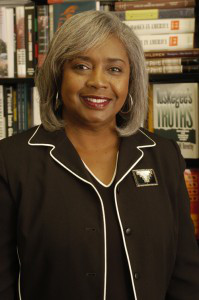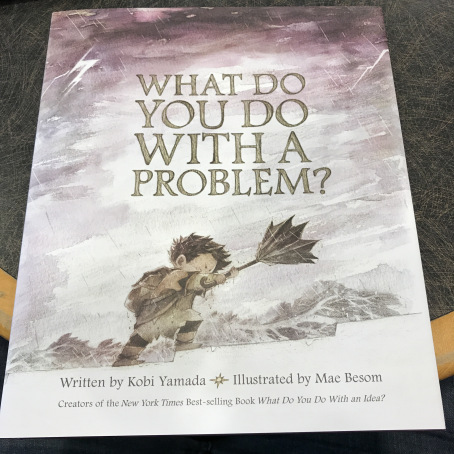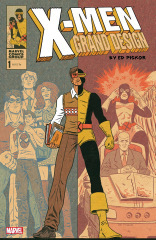 The Roving Reader Files
The Roving Reader Files
I’ve previously raised a cheer for those individuals who do all the donkey work so the likes of you and me can put our feet up reading books by people about other people – writers of biographies and secondary sources. Well, the other day I was struck by a monumental question: what on earth motivates them?
Rummaging around in the Centre, I unearthed Historians and Race. Autobiography and the Writing of History (published 1996). Would this help me find the answer?
 Thanks to editors Paul Cimbala and Robert Himmelberg, the thoughts of several US history professors were brought together specifically to find out how their personal experiences might have influenced their approach to scholarship. Sounds grand? It’s not just grand, it’s earth-shattering. Historians aren’t noted for spending time interpreting their own back stories, so here’s an opportunity to sneak a peek at what causes that itch to sit for decades poring over mountainous piles of books and documents to produce information we can all enjoy and use.
Thanks to editors Paul Cimbala and Robert Himmelberg, the thoughts of several US history professors were brought together specifically to find out how their personal experiences might have influenced their approach to scholarship. Sounds grand? It’s not just grand, it’s earth-shattering. Historians aren’t noted for spending time interpreting their own back stories, so here’s an opportunity to sneak a peek at what causes that itch to sit for decades poring over mountainous piles of books and documents to produce information we can all enjoy and use.
But wait a minute. Does this matter?
Listen to one of our professors – African American scholar Darlene Clark Hine. History has a “capacity to explain why things are,” but (and it’s a big but),
“historians decide who is meritorious, what events should be documented and taught, and how things and individuals are to be known and remembered.”
Blimey! Need I say more?

Darlene Clark Hine. Source: Alchetron
The individuals in Historians and Race came of age in the 1950s and 1960s at a time when race relations were being hotly debated and fought over in the US. Think Civil Rights, Black Power, Flower Power, the Vietnam War… Among our professors are whites socialised in the segregated South, Blacks from across the nation, children of Jewish immigrants from New York… Each has a different perspective on events, yet all come together on the importance of history as a discipline and how it should be written.
Profound social changes, achieving political equality, openness to cultural diversity – these require what Mark Naison describes as a living tradition of discourse:
“rooted in striving for objectivity, a tradition of civility among discussants, and a dialogue between present and past that focuses on sources and facts.”
To him the contributors to Historians and Race are individuals who have learned “to transcend racial barriers in pursuit of knowledge.”

Mark Naison. Source: Bad Ass Teachers Association (http://badassteachers.blogspot.co.uk)
Don’t think this has been easy. Take Dan Carter. Son and grandson of white tobacco farmers in rural South Carolina, he had a burning desire to get to the bottom of his own family’s reaction to losing the American Civil War in the 1860s:
“What compulsion, I kept asking myself, drove my great-grandfather and his brothers and kin and most of the men of his generation to acts that did such harm to the black men and women in their midst?”
We’re not talking the occasional tasteless word here and there. We’re talking systematic brutality and exclusion, intimidation and lynching.
Carter was indignant about the bigoted ignorance he’d inherited as a child in this segregated region. Hence his commitment to ‘history’:
“I believed with great passion in the power of the story. I believed that truth telling about our past (and my own past as a white Southerner) could make a difference in shaping people’s actions and their commitments.”
Eric Foner researched the same post-Civil War period as Carter. But he brought to the exercise his experiences as the child of blacklisted Jewish immigrant educators in New York, left unable to teach during the anti-Communist hysteria that engulfed America from the 1940s to 1960s. Of one of his books on the post-Civil War period he mused;
“the book’s merits derive from the fact that I care deeply about the issues of racial justice central to Reconstruction and our society today… it was written from the heart.”

Eric Foner. Source: Wikimedia Commons
Yet fellow-son of Jewish educators Mark Naison (above) knew passion and commitment were not enough. He remained convinced that:
“only by respecting the norms of the profession [of history] could my work have lasting value… Although I sometimes chafed under their strictures, I came to draw comfort from procedures assuring distance and objectivity, to see the slow pace of historical scholarship as a healing element in a discourse on race too often marked by hyperbole and hysteria.”
Moral commitment, rigorous documentation, facts, respect for evidence. In Historians and Race these professors lay bare the intellectual foundations and practices without which a community based on tolerance and mutual respect cannot exist. As motivators these are as good as anything…
Of course, absolute objectivity is beyond the capacity of any human being to achieve. And not everyone writes from the same standpoint or set of experiences as this handful of professors. Nevertheless, as I sat back reflecting on what I’d read, I felt their conclusions are still as valid today as they were in 1996.
Historians have the tools to attempt the delicate balancing act of uniting passion with a never-ending search for objectivity. That is a responsibility. Theirs is an important and painstaking task, upon which the opinions of millions depend. Historians do count…
Historians and Race. Autobiography and the Writing of History was published in 1996, edited by Paul A Cimbala and Robert F Himmelberg. It contains the contributions of eight of the foremost historians of race and race relations in the US: George B Tindall, Leon F Litwack, Dan T Carter, Darlene Clark Hine, David Levering Lewis, Eric Foner, Jacqueline Jones, and Mark D Naison. Part of the Centre’s aim is to bring together in one place the resources and materials necessary for any study of the history of race relations to be rendered as objective as these professors could wish. The Resource Centre is open to anyone from any community in the world. I’ve had a great time looking round and maybe you would too.
Advertisements Share this:





